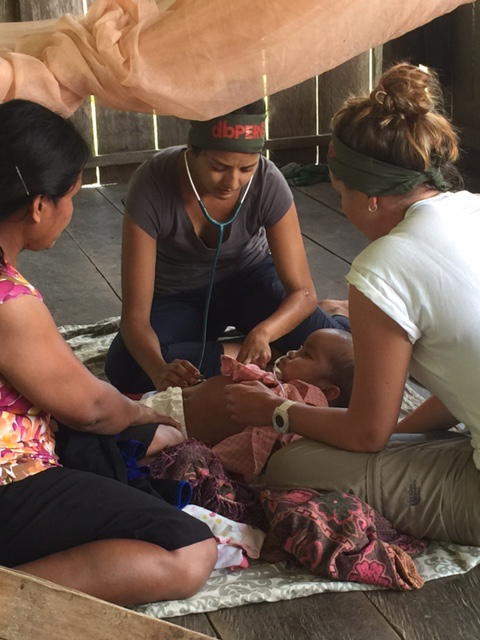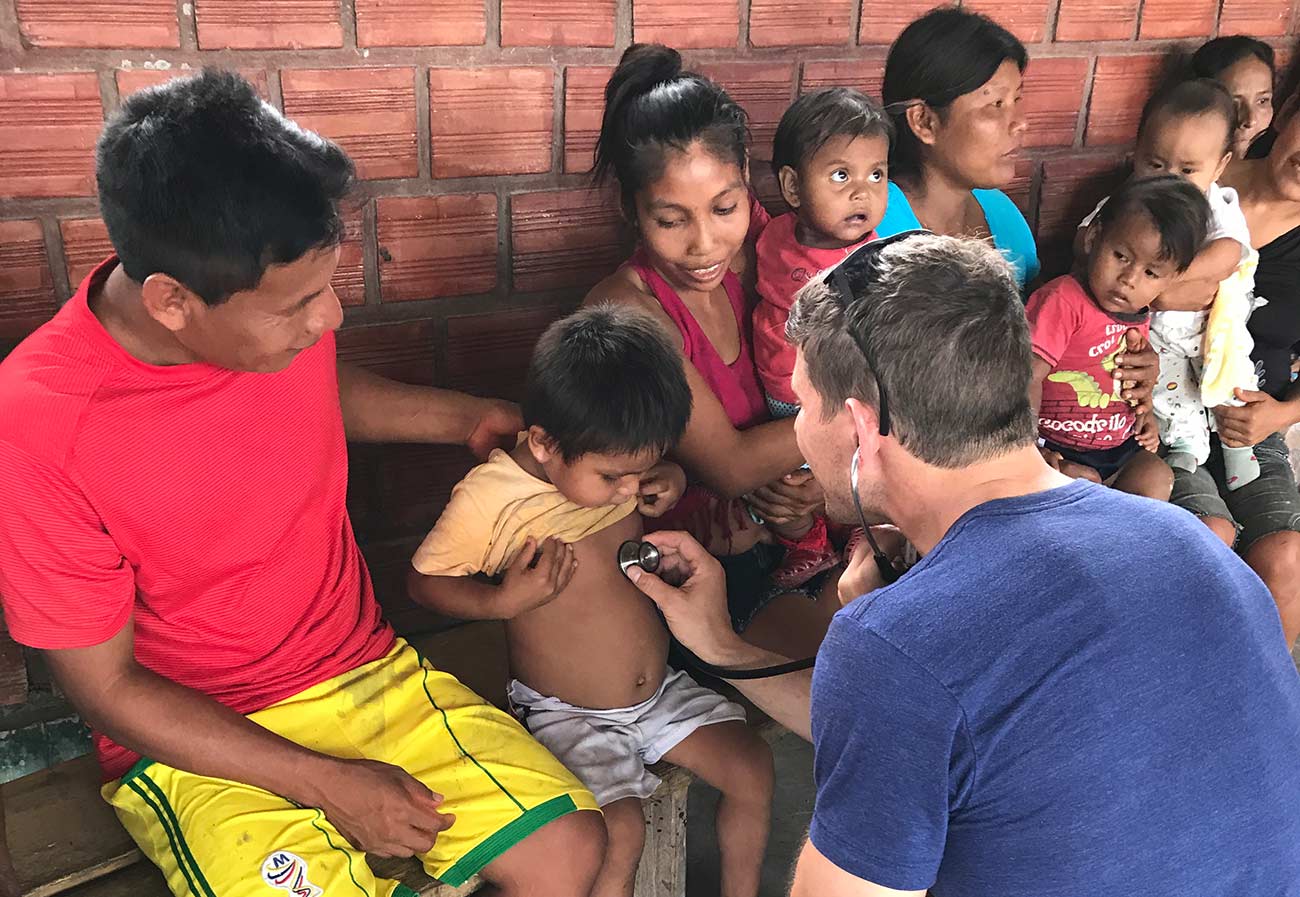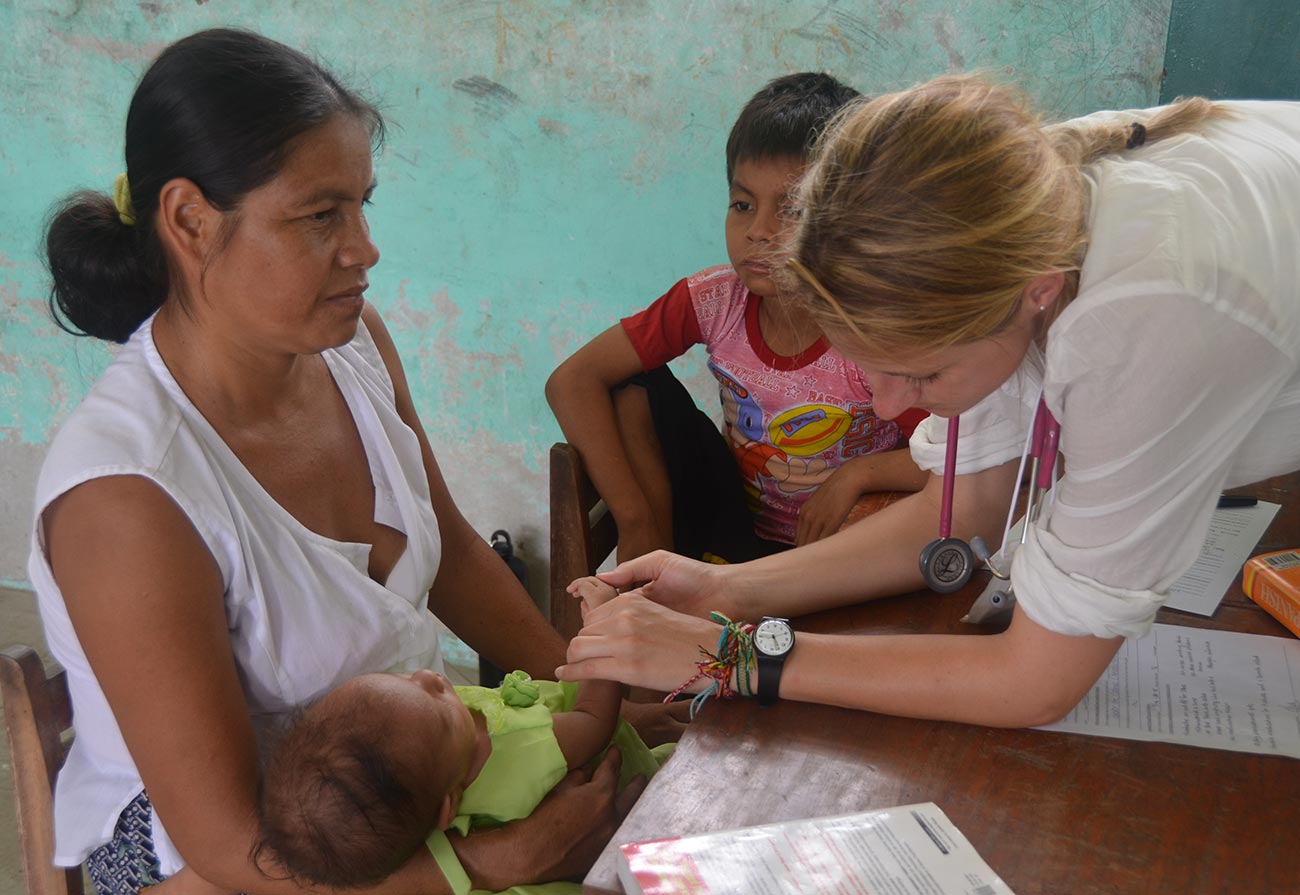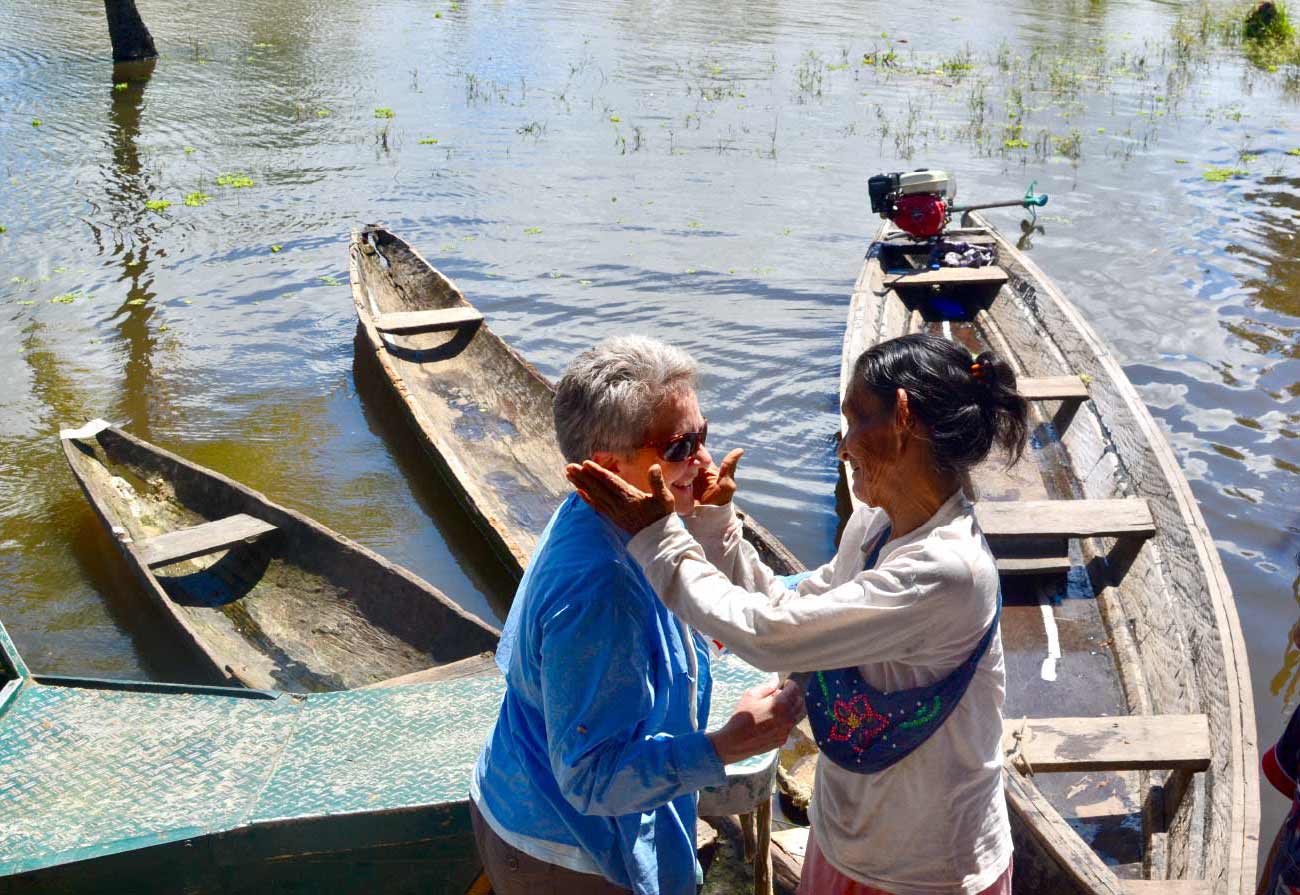Our goal is to bring as much basic care to the people in the villages as possible and train them to care for themselves.
Health care access is the major problem for the people who live along the rivers in the Amazon River basin. Rivers are fast and treacherous. Some people don’t have boats with motors, which may mean a clinic is 8-16 hours away, with someone paddling a canoe.
Some villages have canoes with little motors called peque peques, less than 15 horsepower, but they must also have gasoline. Gasoline requires money, and neither money nor gasoline is readily available in the jungle. Most areas have no or infrequent public boats.
In order to assist the people with better health care access, we developed a simple plan: To bring as much basic care to the people in the villages as possible and train them to care for themselves.
It was our first trip to the jungle to deliver medicines. An older woman came forward, offering us a very large bunch of bananas and an empty wasp nest as a thank you, and said “Please don’t forget us”. At that moment we knew without a doubt we would be back.
Forgotten area
It was our first trip to the jungle to deliver medicines. Standing on the riverbank of one of the most remote villages, we had just finished our work. An older woman came forward, offering us a very large bunch of bananas and an empty wasp nest as a thank you, and said “Please don’t forget us.” At that moment we knew without a doubt we would be back.
Natividad
One of our our most experienced midwives
Natividad, one of our our most experienced midwives, was called to come quickly to another nearby village. She found a mother in labor in distress and a midwife with little experience. Upon checking the mother, Natividad saw that the baby was breach with the feet presenting first instead of the head. She was not able to save the baby.
Childbirth can be risky in any situation, but if you live where there are no clinics in your community, you must depend on people who have experience to help you. Many midwives in our villages have years of experience delivering babies, however they have no formal training.
Since 2004, we have offered annual midwife classes to teach about anatomy, pre and post-natal care, and labor and delivery. In addition, we emphasize the warning signs of pregnancy complications.
One dentist for 15,000 people
That is the reality of where we work in the district of Mazan. By bringing dentists and dental hygienists with us, people now receive dental care of extractions, fillings and cleaning, as well as fluoride treatment and education.
A mother finds her child’s skin is hot and dry
He seems listless. She is worried and goes to her medicine cabinet and gets a fever-reducing syrup.
This would be a normal situation in a first-world country.
For parents living in a remote area like the Amazon jungle, this is not an option – there is no medicine cabinet, or a pharmacy, or a way to get to a pharmacy or doctor for possibly up to 24-48 hours. Training health workers on the proper use of medicine, side effects and precautions has allowed them to safely oversee supplies of medicine in the community medicine box to use when needed.
5 Children with Malaria
They received only enough medicine for one week at the health post, instead of a full course of 3 weeks. When they returned to the health post, there was no more medicine available. There was just enough gasoline to return home.
Our board has established a small fund for patients with extra need, so we were able to give this community several gallons of gasoline to they could travel further up the river to a larger clinic.
Tania
A woman in her early 30’s, Tania did not seek help early for a tumor in her breast.
She had to go to Lima for radiation and chemotherapy, leaving her 4 children with relatives in the jungle. Her children missed one year of school, and were shifted between grandparents, and aunts and uncles to care for them during this time. After 2 years with successful treatment and surgery, she returned to the jungle.
Although she was a survivor, we do not want any woman or their family to have to have this life-changing experience if at all possible. In 2011 we started doing breast exams and taught women to do their own exam at home. Since that time, although some women have been found with breast lumps, we have not had another case of advanced breast cancer in an area of 25 villages.
Since that time, although some women have been found with breast lumps, we have not had another case of advanced breast cancer in an area of 25 villages.
Last Few Days of Life
Upon arrival to a small village, we found a young man dying alone in a hammock with only his pregnant wife to care for him. He was suffering greatly, and volunteers were able to carefully wrap his wounds and administer enough pain medication to make his a few days more comfortable.
Anali
Anali is a little girl in Tigrillo who fell off the hut platform more than 3 years ago. She hit her head and was not able to focus her eyes or move.

We helped send her to Iquitos and on to Lima for evaluation, where it was found that she had an inoperable brain tumor. She has now been in her hut in the jungle with her mother for 2 years. Her mother takes perfect care of her, and we try to check on them almost very visit, to make sure the mother has everything she needs for Anali’s care. At this point we feel that our presence is most important for the mother, who has almost no emotional support.



